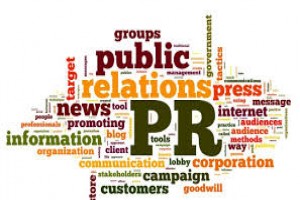Event Details
- Manage protocol and event functions efficiently and effectively
- Apply the tips and avoid the traps of organizing events
- Use communication skills to promote successful events
- Identify risk and understand how to minimize its impact
- Ensure that events are delivered on time and to budget
COURSE CONTENT
Managing the Protocol and Events Function
- Role and responsibilities of the functions, internal and external teams
- Creating streamlined plans, policies, systems, structures and procedures
- Keeping up-to-date nationally and internationally
- Record-keeping, monitoring, updating and maintaining
- Appropriate policies, processes and procedures according to protocol
Exhibitions, Conferences, Visits and Events – National and International
- Planning and organising events, conferences and visits
- Organising, exhibiting at or attending exhibitions
- Trade visits and the protocol for them
- Greeting foreign dignitaries, flying flags correctly and meeting expectations
- Order of precedence for official ceremonies
Communication Appropriate for Guests, Audiences and Stakeholders
- Written communication to prevent misunderstandings
- Oral communication including talking, listening and understanding
- Body language, facial expressions and gestures to prevent offence
- Organisational communication: media, photography, seating, timing, speeches
- Cultural: demonstrating respect for national and international protocol
Risk and Crisis Management for Different Events
- Identifying all the possible risks for an event
- Evaluation of likelihood and impact
- Seven ways to deal with risk
- Creating and rehearsing contingency plans
Budgeting and Cost Control
- Budgeting accurately and meaningfully
- Monitoring authorisation, approvals, expenditure, allowances, expenses and receipts
- Monitoring expenditure against budget
- Cancellations, claims, reimbursements, hospitality
- Insurance which is robust, appropriate and up-to-date
Project Management in Protocol and Events
- Project management principles and approach applied to events
- Measuring and monitoring the effectiveness of the planning and the resulting event
- Managing and maintaining the quality of the range of external suppliers
- Resources required to manage events efficiently
- Role and responsibilities before, during and after the event
PR and Marketing for Successful Events
- Identifying target markets and objectives
- Clarifying message for each market
- Appropriate channels to reach guests, audiences and stakeholders
- Promoting organisation’s brand and enhancing its reputation
- Evaluation, feedback and lessons learned
Building and Maintaining Strong Relationships
- Principles of durable relationships
- Building strong relations with your internal clients, suppliers, agents and contacts
- Building diplomatic relationships with Embassies and Missions
- Cultural etiquette in business, social, entertaining, dress, giving and receiving presents
- Promoting cross cultural understanding of history and traditions
Meetings at Home and Abroad
- Pre-meeting preparation including seating, translator, interpreters, and timings
- Chairing, participating, agenda, minutes, follow-up and action plans
- Order of dignitaries for entering a room, introductions, talking and making presentations
- Conflict resolution, decision-making and problem-solving
FOR WHOM:
Public Relations managers, Supervisors, Officers and Others who perform related functions both in public and private sector
TRAINING METHODOLOGY
The training methodology combines lectures, discussions, group exercises and illustrations. Participants will gain both theoretical and practical knowledge of the topics. The emphasis is on the practical application of the topics and as a result participant will go back to the workplace with both the ability and the confidence to apply the techniques learned to their duties.
This course is available in the following locations:
Nigeria - $3000
Ghana - $6000
Rwanda - $7000
UK - $8000
USA - $8000



